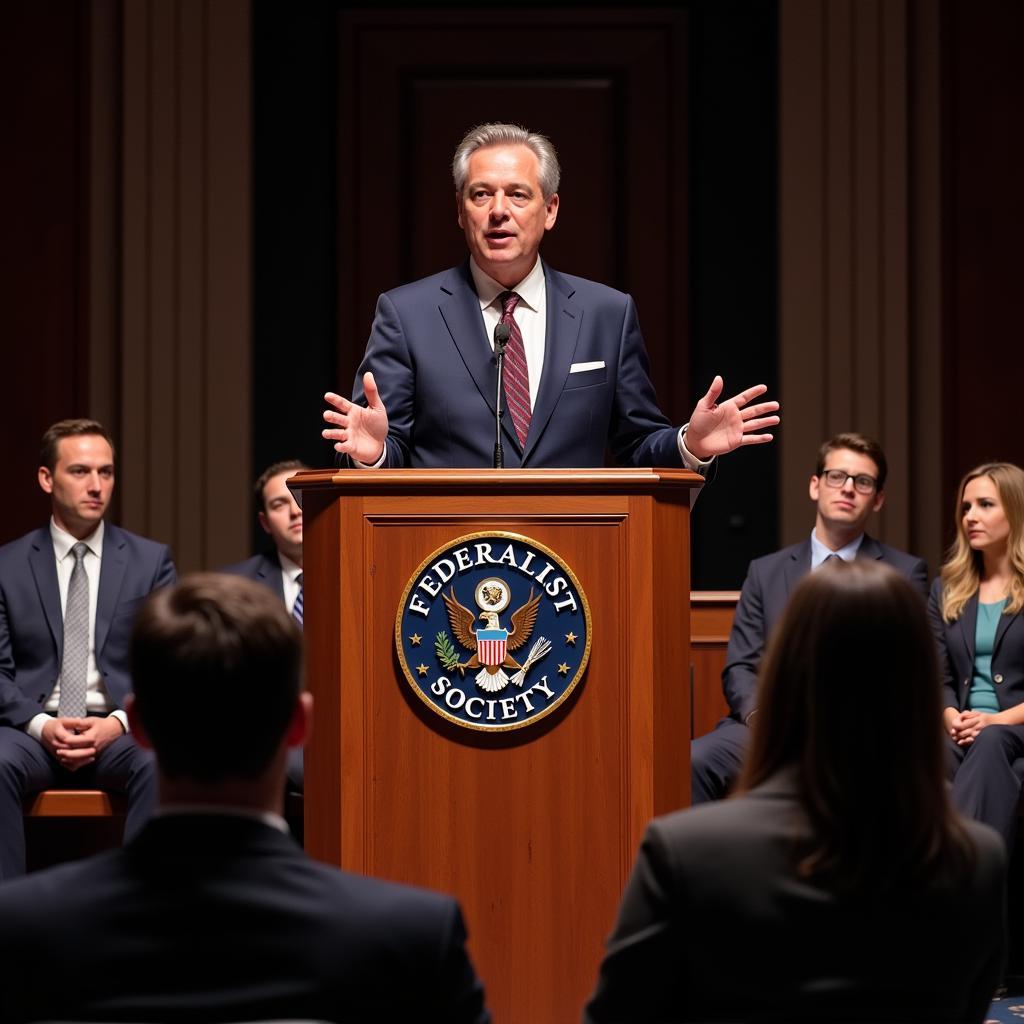The influence of the Federalist Society on contemporary legal thought is undeniable, and within this sphere of influence, legal scholar William Baude stands as a significant figure. His work, often intersecting with the principles and values championed by the Federalist Society, sparks ongoing conversations about the very foundation of American law and its future trajectory.
 William Baude at a Federalist Society Event
William Baude at a Federalist Society Event
Understanding the Federalist Society’s Impact
Founded in 1982, the Federalist Society has grown into a powerful force in American law, fostering debate and advancing originalist and textualist interpretations of the Constitution. The organization boasts a network of conservative and libertarian lawyers, judges, and scholars, including prominent figures like Supreme Court Justices Clarence Thomas, Samuel Alito, Neil Gorsuch, Brett Kavanaugh, and Amy Coney Barrett. The Society’s influence extends beyond judicial appointments, shaping legal discourse through its debates, publications, and initiatives.
William Baude: A Leading Voice in Constitutional Law
William Baude, a professor at the University of Chicago Law School, has emerged as a leading scholar of constitutional law, known for his rigorous scholarship and nuanced approach to originalism. His work grapples with fundamental questions about the nature of constitutional interpretation, the separation of powers, and the limits of judicial review. Baude’s scholarship often intersects with the Federalist Society’s emphasis on originalism, sparking debate and influencing the trajectory of legal thought.
Key Areas of Intersection: Originalism and Judicial Philosophy
Baude’s commitment to originalism, a judicial philosophy emphasizing the original meaning of the Constitution, aligns with a core principle of the Federalist Society. This shared intellectual framework informs their perspectives on a range of issues, including the role of precedent, the scope of federal power, and the protection of individual rights.
The Future of Law: Debates and Implications
The intersection of William Baude’s scholarship and the Federalist Society’s influence signals a potential shift in the legal landscape. As originalism gains traction in legal circles, questions arise about its implications for contemporary issues. How should courts interpret a centuries-old document in the face of evolving societal norms and technological advancements? What role should precedent play in an originalist framework? These questions lie at the heart of ongoing debates about the future of law, with Baude’s work and the Federalist Society’s influence playing a significant role in shaping the discourse.
Navigating Complexity and Fostering Dialogue
Understanding the nuances of legal philosophy and its practical implications can be challenging. However, engaging in thoughtful dialogue about these issues is crucial for a healthy democracy. As we navigate the complex intersection of William Baude’s scholarship, the Federalist Society’s influence, and the future of law, it is essential to approach these conversations with open minds, seeking to understand different perspectives and their potential impact on society.